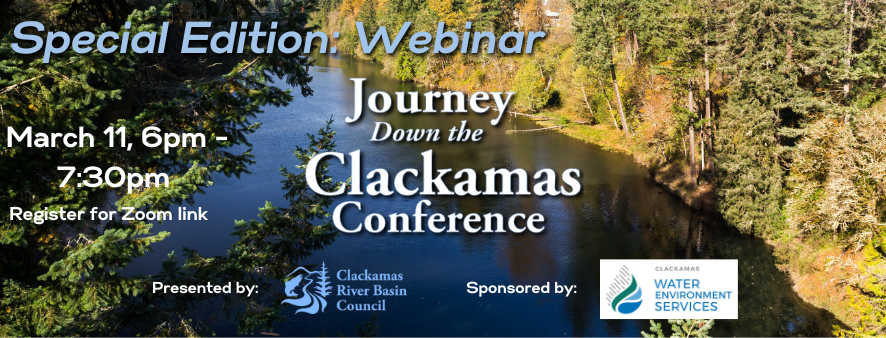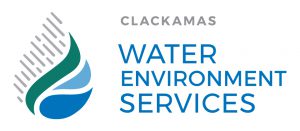
Journey Down the Clackamas: Thermal Habitat Across Time and Space
Join us for a return of our popular virtual seminar series about our unique watershed and its natural resources! More information below.
Speakers:
Dave Bugni (CRBC)
Michael Krochta (Portland State University)
Dr. Heejun Chang (Portland State University)
Kara Anlauf-Dunn (Oregon Department of Fish and Wildlife)
When:
March 11, 6-7:30pm
Where:
Zoom (a link will be sent one week before the event, and you will be invited to a calendar event with Zoom link upon registration)
Sign up using the form below to receive the Zoom link before the event
This presentation also introduces a new interactive web tool that integrates thermal and habitat metrics to support strategic conservation and restoration planning, offering a valuable resource for land and resource managers.
CRBC is thankful to our sponsor, whose generosity allows us to conduct this conference for the public free of charge:
